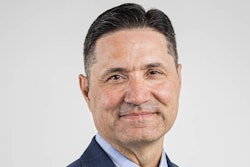Using federal funds from the American Rescue Plan, Trinity Washington University—a Predominantly Black Institution and Hispanic Serving Institution located in the nation’s capital—has fully paid off $1,828,901 in balances for nearly 400 full-time undergraduate students who owe balances to Trinity, more than 40% of the full-time undergraduate student body. According to Trinity officials, the average balance payoff is $4,583.
 Patricia McGuire
Patricia McGuire“This is absolutely the right thing to do for our students,” said Trinity’s President Patricia McGuire. “Trinity students will start the Fall 2021 semester with a fresh balance sheet on their Trinity accounts,” she said, adding that students accumulated balances during the pandemic, from March 2020 through May 2021. “Many of our students lost their jobs at restaurants and other service locations, and others were also the primary financial support for their families, making it hard to pay their tuition bills. While students could register for the next semester, they still had balances. The federal government has provided funds through the American Rescue Plan that allows colleges and universities to help resolve student balances that were accrued during the pandemic. We want to wipe the slate clean so they can start the fall semester with a zero Trinity balance.”
McGuire said that the financial support is for all full-time undergraduate students, including international and undocumented students.
“Paying off student balances strongly aligns with Trinity DARE: Driving Actions for Racial Equity, said McGuire, who has served as president of the private, Catholic university since 1989. “Trinity DARE focuses on specific strategies and actions that we are taking now, and will enlarge in the future, to promote racial equity for Trinity students and graduates. We believe that widening pipelines for our graduates to enter professions where persons of color are under-represented is one of the strongest contributions Trinity can make to improving the climate for racial equity more broadly. Black women carry the highest student debt burden in the country, and debt loads often inhibit their ability to complete degrees and become successful in their chosen professions. Reducing student debt burdens hastens degree completion and supports early career success, which ensures long-term growth and professional achievement.”















